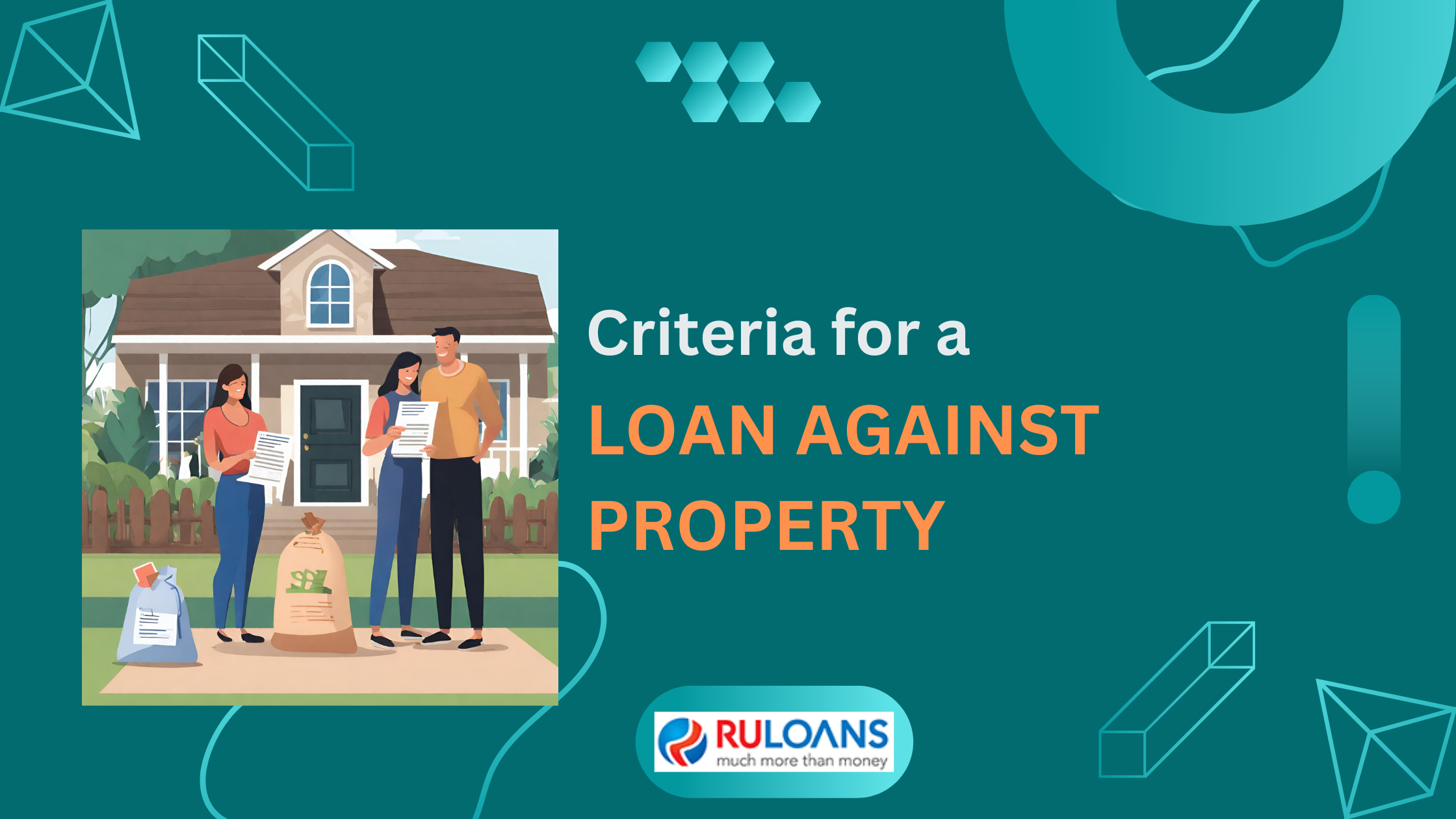Introduction
When you need substantial funds for various purposes, a loan against property can be a viable solution. This type of loan allows you to leverage the value of your property as collateral and secure a loan from a lender. However, it’s important to understand the criteria involved in obtaining a loan against property, as they can vary depending on the lender and the type of property. In this blog post, we will explore the criteria for a loan against property, including the property value, credit score, income, and lender’s policies. Understanding these criteria will help you determine your eligibility and increase your chances of getting approved for a loan against property.
What is a Loan Against Property?
A loan against property is a type of secured loan where you pledge your property as collateral to obtain funds from a lender. The property can be residential, commercial, or even a piece of land. By offering your property as security, you provide the lender with assurance that they can recover their funds in case of loan default. This makes loan against property a secured borrowing option.
Criteria for a Loan Against Property
The criteria for a loan against property typically include the following factors:
1. Property Value: The value of the property is a crucial criterion as it determines the loan amount you can potentially secure. Lenders usually offer loans up to a certain percentage of the property’s value, which can vary from 50% to 75%.
2. Credit Score: Your credit score plays a significant role in determining your creditworthiness. A higher credit score indicates a better repayment history and improves your chances of getting approved for a loan against property.
3. Income: Your income is another important factor that lenders consider to assess your repayment capacity. A stable and sufficient income increases your eligibility for a loan against property.
4. Lender’s Policies: Each lender has specific policies and criteria for approving loan against property applications. These policies may vary in terms of property type, location, tenure, and other factors. It’s essential to research and compare lenders to find the one whose policies align with your requirements.
Average Loan Amount for a Loan Against Property
The average loan amount for a loan against property is typically around 50% of the property’s value. However, it’s important to note that the loan amount can vary based on factors such as the property type, location, credit score, income, and lender’s policies. Some lenders may offer higher loan amounts up to 75% of the property’s value, while others may provide lower amounts.
Conclusion
When considering a loan against property, understanding the criteria involved is crucial. The criteria typically include property value, credit score, income, and lender’s policies. By evaluating these factors and ensuring that you meet the eligibility requirements, you can increase your chances of getting approved for a loan against property. Remember to research different lenders, compare their offerings, and select the one that best suits your needs. If you meet the criteria, a loan against property can provide you with the funds you need for various purposes while leveraging the value of your property.
Key Takeaways
- A loan against property allows you to leverage the value of your property to secure funds.
- The criteria for a loan against property include property value, credit score, income, and lender’s policies.
- Property value determines the loan amount you can potentially secure, usually ranging from 50% to 75% of the property’s value.
- A higher credit score and stable income increase your chances of getting approved for a loan against property.
- Researching and comparing lenders’ policies is essential to find the best loan against property option.
Frequently Asked Questions (FAQs)
1. Can I apply for a loan against property if my property is under a joint name?
Yes, you can apply for a loan against property even if the property is jointly owned. However, all co-owners must be part of the loan application and provide necessary documents.
2. How can I improve my eligibility for a loan against property?
To improve your eligibility for a loan against property, you can work on maintaining a good credit score, showcasing a stable income, providing accurate property documents, and ensuring timely repayment of existing loans.
3. Can I use a commercial property to avail a loan against property?
Yes, you can use a commercial property to avail a loan against property. Lenders offer loans against various types of properties, including residential, commercial, and land.
4. Are there any tax benefits associated with a loan against property?
The interest paid on a loan against property is eligible for tax benefits under certain conditions. You can consult a tax advisor or refer to the prevailing tax laws in your jurisdiction to understand the specific benefits applicable to you.
When you need financial assistance and want to explore the option of a loan against property, Ruloans can be your trusted partner. Visit our website to learn more about loan against property offerings and connect with our team of experts who can guide you through the loan application process. Take the first step toward securing the funds you need by contacting us today!










